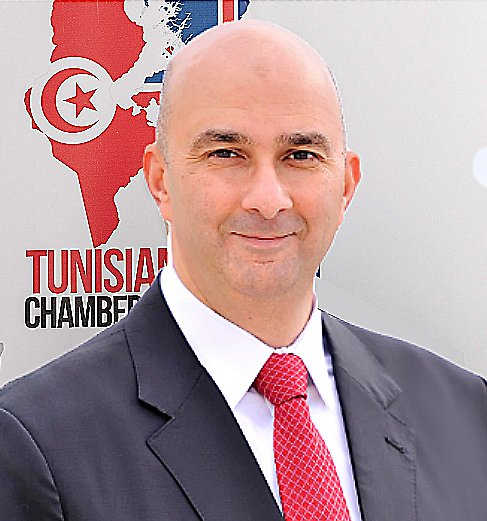
Fitch Ratings – Hong Kong – 01 Dec 2022: Fitch Ratings has upgraded Tunisia’s Long-Term Foreign-Currency Issuer Default Rating (IDR) to ‘CCC+’ from ‘CCC’. Fitch typically does not assign Outlooks to sovereigns with a rating of ‘CCC+’ or below. Fitch has removed the Long-Term IDRs from Under Criteria Observation (UCO).
A full list of rating actions is at the end of this rating action commentary.
KEY RATING DRIVERS
Easing Government Liquidity Risk, Reforms Anchored: The upgrade to ‘CCC+’ reflects Fitch’s view that the Staff Level Agreement reached with the IMF for a new 48-month USD1.9 billion Extended Fund Facility (EFF) will unlock large amounts of official creditor funding and support fiscal consolidation, despite uncertainty about continued adherence to the programme. The IMF programme aims to address Tunisia’s main structural weaknesses (through revenue mobilisation, control of the public wage bill, subsidies and public sector enterprise (SOEs) reforms) and will not require debt restructuring. Approval of the programme by the IMF Board and indications of strong compliance could further support Tunisia’s credit profile.
Government Funding Needs Likely Covered: We forecast government financing needs to reach 16.4% of GDP and 16.8% of GDP in 2022 and 2023, respectively, pushed up by the large additional spending to absorb the shock from the war in Ukraine and external debt maturities of USD1.4 billion and USD2.0 billion, respectively. According to the authorities, about USD1.3 billion financing from Saudi Arabia, Abu Dhabi and Afreximbank are at the final negotiations stage, which together with the first IMF instalment would close the funding gap for 2022. Tunisia is negotiating another USD1.8 billion financing, mostly from the GCC, which on top of planned disbursements from the IMF, multilateral and western bilateral creditors (around USD2.4 billion) – unlocked with the IMF agreement – and domestic market funding would cover budget and external funding needs in 2023.
While the funding plan provides some visibility of Tunisia’s ability to face upcoming external debt service obligations, financing pressures could reappear if Tunisia deviates from the IMF programme objectives, endangering further disbursements, or if commodity prices stay above our forecast, especially as Tunisia will face a peak of external debt maturities in 2024 (around USD2.6 billion, including EUR850 million Eurobonds).
Fiscal Consolidation Driven by Reforms: We expect the general government deficit to decline to 5.6% of GDP in 2023 and 3.8% of GDP in 2024 from 7.3% in 2022, with lower commodity prices and reform implementation. We expect planned tax measures will maintain fiscal revenue in the range of 25%-26% of GDP, from a 22.5% average in the past five years. The wage deal signed with the main union, UGTT, in September limits growth of the wage bill to 5.5% per year over the next three years, implying a decline in real terms. However, the resulting savings will be largely offset by increasing interest costs. Subsidy and SOE reforms will be required in order to improve Tunisia’s structural deficit. The planned phasing out of fuel subsidies in 2023 will be key to Tunisia’s fiscal consolidation.
Political Transition Poses Risks: Parliamentary elections will be held on 17 December. After more than a year of political ruling without a parliament, the elections could bring more stability in a new presidential regime with a streamlined legislative process. However, several opposition parties announced they will boycott the elections, in response to the new electoral law passed by decree. This could lead to social unrest fuelled by inflation and high unemployment.
While we expect the wage agreement to hold in 2023 and plausibly beyond, social pressures and UGTT opposition could also derail planned essential products subsidy and SOE reforms that are key parts of the IMF programme. Historically, adherence to IMF programmes has been weak and it is still unclear whether this has changed as the need for reforms has become more widely accepted and the political environment is changing.
External Liquidity Pressures Remain: We forecast the current account deficit will materially widen to 9.3% of GDP in 2022 from 6.0% of GDP in 2021 on the back of Tunisia’s large net importer position for commodities exposed to the war in Ukraine. We expect the current account deficit to remain high at 7.5% of GDP in 2023 as low growth in Europe, the main destination for exports, and strong dollar will offset the moderate decrease in commodity prices, before recovering to 6.9% of GDP in 2024.
External debt amortisation of 4.4% of GDP in 2023 and 5.2% of GDP in 2024 will add to the external financing pressures. In our view, failure to obtain planned external funding would significantly add to the balance of payment pressures and pose a risk to the stock of foreign-exchange reserves (at 98 days of imports in November) and ultimately the currency. Tunisia’s debt is highly exposed to exchange rate shocks. A 10% depreciation of the currency would increase debt by about 5% of GDP.
Inflation to Remain Elevated: Inflation has risen throughout 2022 to reach 9.2% in October. We forecast average inflation to reach 10.2% in 2023, pushed up by fuel price increases under the IMF programme. Monetary policy tightening has been moderate, with an expected cumulative rate increase of 100bp in 2022. We believe the large macro imbalances and high leverage of private companies limit the room for manoeuvre of monetary policy. However, further small-scale rate increases are probable in 2023.
Unfavourable Growth Prospects: We expect GDP growth to remain limited at 2.4% in 2022 and to slowdown materially to 1.6% in 2023 as a result of high inflation, unfavourable policy mix in the short term to resolve large macro imbalances, and the impact from the growth shocks in Europe. We expect growth to remain low in the 2.0-2.5% range in the medium term, as barriers to competition remain elevated and constitute a major hurdle to private sector growth. A set of measures have been identified by the authorities to reduce administrative rigidity, but implementation and impact on macroeconomic outcomes remain uncertain.
ESG – Governance: Tunisia has an ESG Relevance Score (RS) of ‘5’ for both Political Stability and Rights and for the Rule of Law, Institutional and Regulatory Quality and Control of Corruption. Theses scores reflect the high weight that the World Bank Governance Indicators (WBGI) have in our proprietary Sovereign Rating Model. Tunisia has a medium WBGI ranking at 44th percentile, reflecting low political stability, established but weakening rule of law and rights for participation in the political process and moderate institutional capacity and level of perceived corruption.
RATING SENSITIVITIES
Factors that could, individually or collectively, lead to negative rating action/downgrade:
- Public Finances: Failure to obtain planned external funding, resulting in increased financing stress, for example because of a significant deviation from the reform agenda endangering the IMF programme.
- External Accounts: Wider current account deficits or other unexpected external funding needs putting pressure on FX reserves and external debt sustainability.
Factors that could, individually or collectively, lead to positive rating action/upgrade:
- Public Finances: Continued commitment to reform implementation supporting IMF programme performance and funding.
- External Account: Contained risk on the FX reserves and the currency for example from significantly lower current account deficits or increased buffers to meet large upcoming external debt maturities.
SOVEREIGN RATING MODEL (SRM) AND QUALITATIVE OVERLAY (QO)
Fitch’s proprietary SRM assigns Tunisia a score equivalent to a rating of ‘B+’ on the Long-Term Foreign-Currency IDR scale. However, in accordance with its rating criteria, Fitch’s sovereign rating committee has not utilised the SRM and QO to explain the ratings in this instance. Ratings of ‘CCC+’ and below are instead guided by the rating definitions.
Fitch’s SRM is the agency’s proprietary multiple regression rating model that employs 18 variables based on three-year centred averages, including one year of forecasts, to produce a score equivalent to a LT FC IDR. Fitch’s QO is a forward-looking qualitative framework designed to allow for adjustment to the SRM output to assign the final rating, reflecting factors within our criteria that are not fully quantifiable and/or not fully reflected in the SRM.
BEST/WORST CASE RATING SCENARIO
International scale credit ratings of Sovereigns, Public Finance and Infrastructure issuers have a best-case rating upgrade scenario (defined as the 99th percentile of rating transitions, measured in a positive direction) of three notches over a three-year rating horizon; and a worst-case rating downgrade scenario (defined as the 99th percentile of rating transitions, measured in a negative direction) of three notches over three years. The complete span of best- and worst-case scenario credit ratings for all rating categories ranges from ‘AAA’ to ‘D’. Best- and worst-case scenario credit ratings are based on historical performance. For more information about the methodology used to determine sector-specific best- and worst-case scenario credit ratings, visit https://www.fitchratings.com/site/re/10111579.
Sources of Information
The principal sources of information used in the analysis are described in the Applicable Criteria.
REFERENCES FOR SUBSTANTIALLY MATERIAL SOURCE CITED AS KEY DRIVER OF RATING
The principal sources of information used in the analysis are described in the Applicable Criteria.
ESG CONSIDERATIONS
Tunisia has an ESG Relevance Score of ‘5’ for Political Stability and Rights as World Bank Governance Indicators have the highest weight in Fitch’s SRM and are therefore highly relevant to the rating and a key rating driver with a high weight. Social tensions in the context of financial pressures are constraining reforms and impacting the economy. As Tunisia has a percentile rank below 50 for the respective Governance Indicator, this has a negative impact on the credit profile
Tunisia has an ESG Relevance Score of ‘5’ for Rule of Law, Institutional & Regulatory Quality and Control of Corruption as World Bank Governance Indicators have the highest weight in Fitch’s SRM and are therefore highly relevant to the rating and are a key rating driver with a high weight. As Tunisia has a percentile rank below 50 for the respective Governance Indicators, this has a negative impact on the credit profile.
Tunisia has an ESG Relevance Score of ‘4+’ for Human Rights and Political Freedoms as the Voice and Accountability pillar of the World Bank Governance Indicators is relevant to the rating and a rating driver. As Tunisia has a percentile rank above 50 for the respective Governance Indicator, this has a positive impact on the credit profile.
Tunisia has an ESG Relevance Score of ‘4+’ for Creditor Rights as willingness to service and repay debt is relevant to the rating and is a rating driver for Tunisia, as for all sovereigns. As Tunisia has a track record of 20+ years without a restructuring of public debt and captured in our SRM variable, this has a positive impact on the credit profile.
Except for the matters discussed above, the highest level of ESG credit relevance, if present, is a score of ‘3’. This means ESG issues are credit-neutral or have only a minimal credit impact on the entity, either due to their nature or to the way in which they are being managed by the entity. For more information on Fitch’s ESG Relevance Scores, visit www.fitchratings.com/esg.
Source : fitchratings.com


















